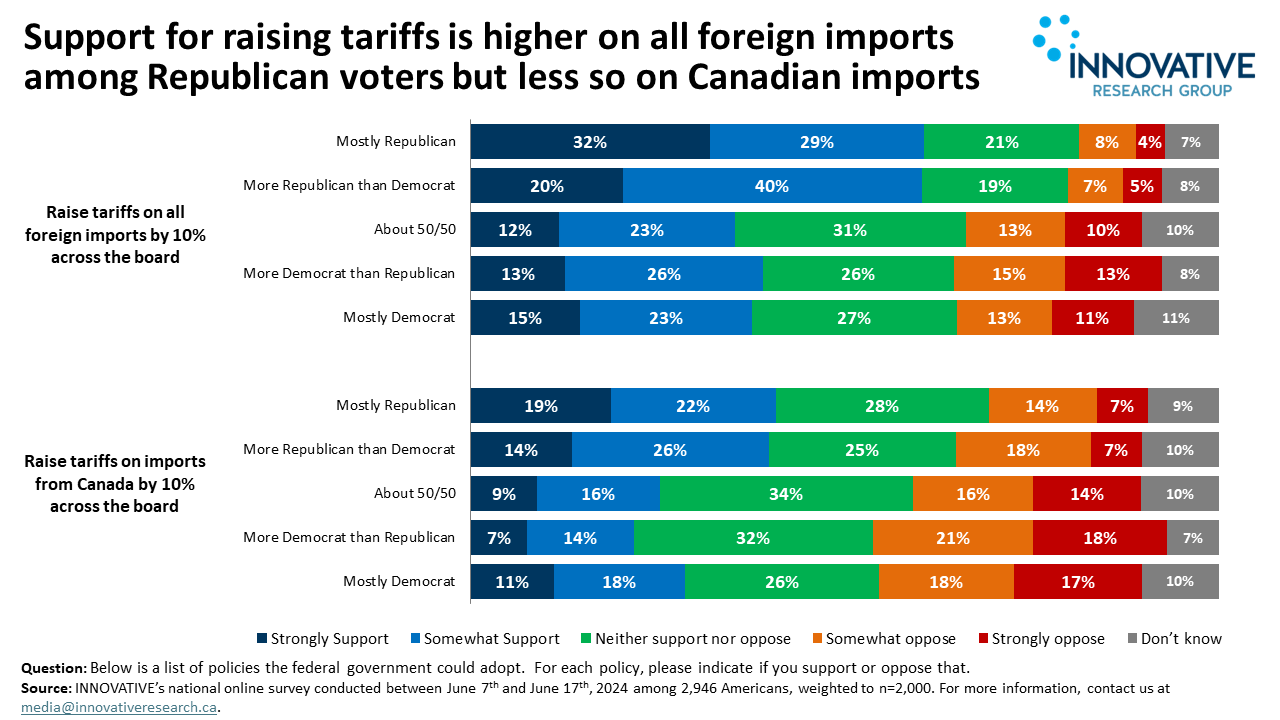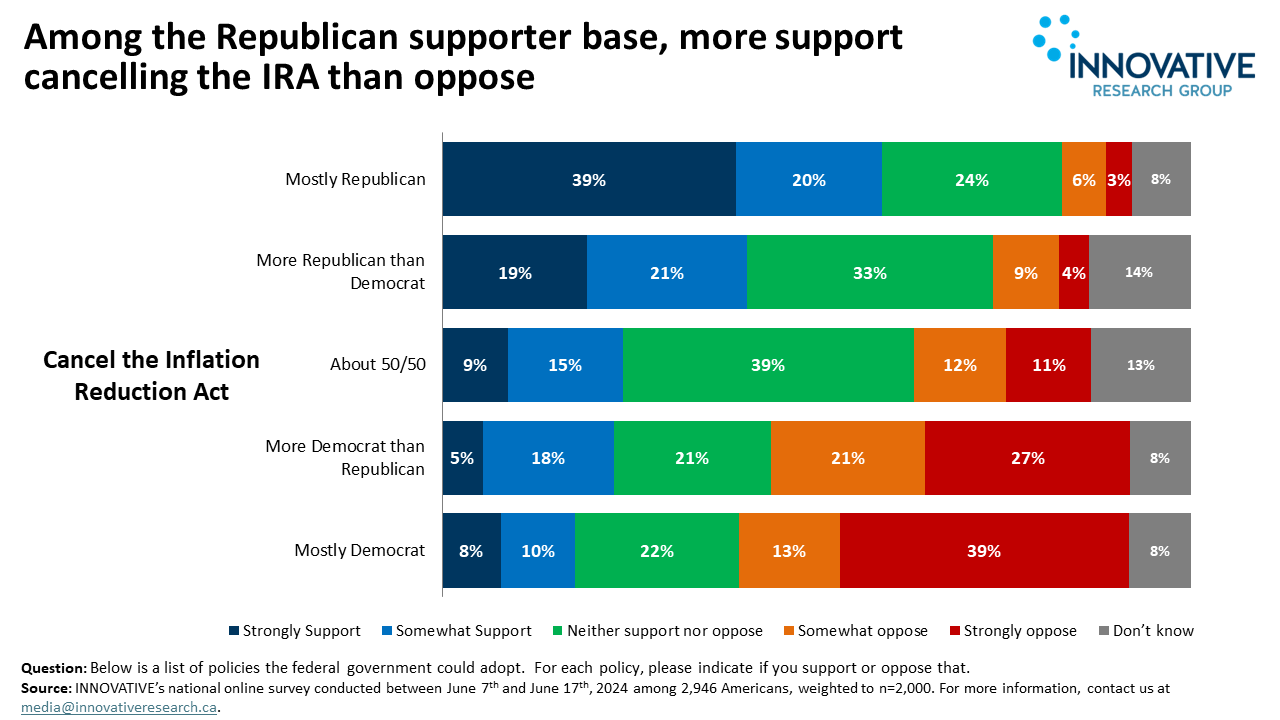
If Donald Trump wins this fall’s Presidential election, there is a significant risk of higher tariffs on Canadian exports to the US and less incentives for the energy transition.
Earlier in June, INNOVATIVE conducted an online poll in Canada and the US to understand the similarities and differences in their national politics. These surveys build on similar studies in the 2016 and 2020 Presidential campaigns. This survey included a comparison of opinion in the two countries on energy transition and trade and American reactions to increased tariffs and cancelling the IRA.
Environment and the Energy Transition
More than seven in ten Canadians and Americans strongly agree that human activity is probably or definitely driving climate change. However, both countries also agree that while we need to pay more attention to the environment, we also need to be careful not to rush into policies that do more harm than good.
Americans (58%) are more likely than Canadians (48%) to be at least somewhat familiar with the concept of the energy transition. Americans are more likely to disagree than agree “I don’t care where we get energy from, so long as it is at the lowest price” while Canadians are more divided. In both countries, those that have an opinion are much more likely to see the energy transition as a good thing rather than a bad thing.
Despite that general positive impression, both countries hold conflicting beliefs on energy transition. In fact, both Canada and the US are generally more likely to agree with statements that support continuing the export of oil and gas than to agree with pro-transition statements. Americans tend to be even more supportive of oil and gas than Canadians.
One factor likely impacting those views is the strong desire in both countries to be self-sufficient in energy. In Canada, 76% say it is important to be self-sufficient while 84% feel the same way in the US.
Trade
There has been a significant increase in the number of Americans who feel free trade agreements are a good way to create economic growth. While only 41% felt that way in 2016, that number grew to 53% in 2020 and 59% in 2024. In all three polls a majority of Canadians supported free trade, with 62% feeling it is a good way to create economic growth in both 2020 and 2024.
Strong majorities of Americans (67%) and Canadians (57%) feel the existing free trade agreement between the two countries is a good thing.
Looking at energy trade, despite the general desire for energy self-sufficiency, three times as many Americans think importing oil from Canada is a good thing, not a bad thing, and four times as many Americans think importing electricity from Canada is a good thing, not a bad thing. Similarly, Canadians are more than twice as likely to say oil and electricity exports to the US are good thing, not a bad thing.
Trade and the IRA as US Wedge Issues
Despite generally positive views of free trade, tariffs have strong appeal in this campaign. The idea of raising tariffs by 10% on imports across all countries has plurality support among Democrats and swing voters, and strong majority support among Republican voters.
Raising tariffs on Canadian imports has less support. Pluralities of Democrats are opposed to that idea. But there is more support than opposition among Republicans. The earlier numbers show Canadians have a good case to make to lawmakers. But these results show that if a Trump administration wants to put a duty on Canadian imports, they can do so without taking much damage in their base, at least initially.

The Inflation Reduction Act has moderate levels of awareness with 16% saying they can explain the details and another 32% who are familiar but can’t explain it to others. While a plurality (40%) think the IRA is a good thing, 21% think it is bad and 29% think it is a mix of good and bad.
There is a dramatic partisan skew to these numbers. A strong majority (69%) of mostly Democrat voters think the IRA is good, but that drops to 51% among less consistent Democrats, and falls all the way to 14% among mostly Republican voters.
Since swing voters are divided and the issue helps Democrats as much as Republicans, cancelling the IRA has limited appeal during the campaign. But if Trump is President, he can cancel the IRA and score points with his base.

Summary
Canadian and American opinions are a lot more alike than some Canadians might expect. Both nations are conflicted on the energy transition, and both feel trade with each other is good.
Yet, the Canadian energy sector remains vulnerable to American political winds. There is no pressure to raise tariffs targeting Canada. And the politics of eliminating the IRA are mixed for the election. But if there is a second Trump administration, this survey shows that if the administration wants to, it can raise Canadian tariffs and cancel the IRA with few upfront consequences.
When it comes to energy sector, the outcome of the US election has the potential to be just as consequential as the Canadian election.
See the detailed results here.


































